Selecting a strong platform for your blog is one of the most important steps in creating a powerful and impactful brand. The basics of blogging platforms provide the full digital landscape that you utilize to develop you blog. There are so many low-cost or no-cost platforms that exist for you to choose from.
As you take these options into account, weigh the pros and cons. Keep in mind that you will want to utilize a platform that is user friendly. You also want flexibility for design and theme updates. Additionally, the inclusion of features and plugins is ideal as you watch your audience and traffic grow.
Five of the most popular blogging platforms can be found below.
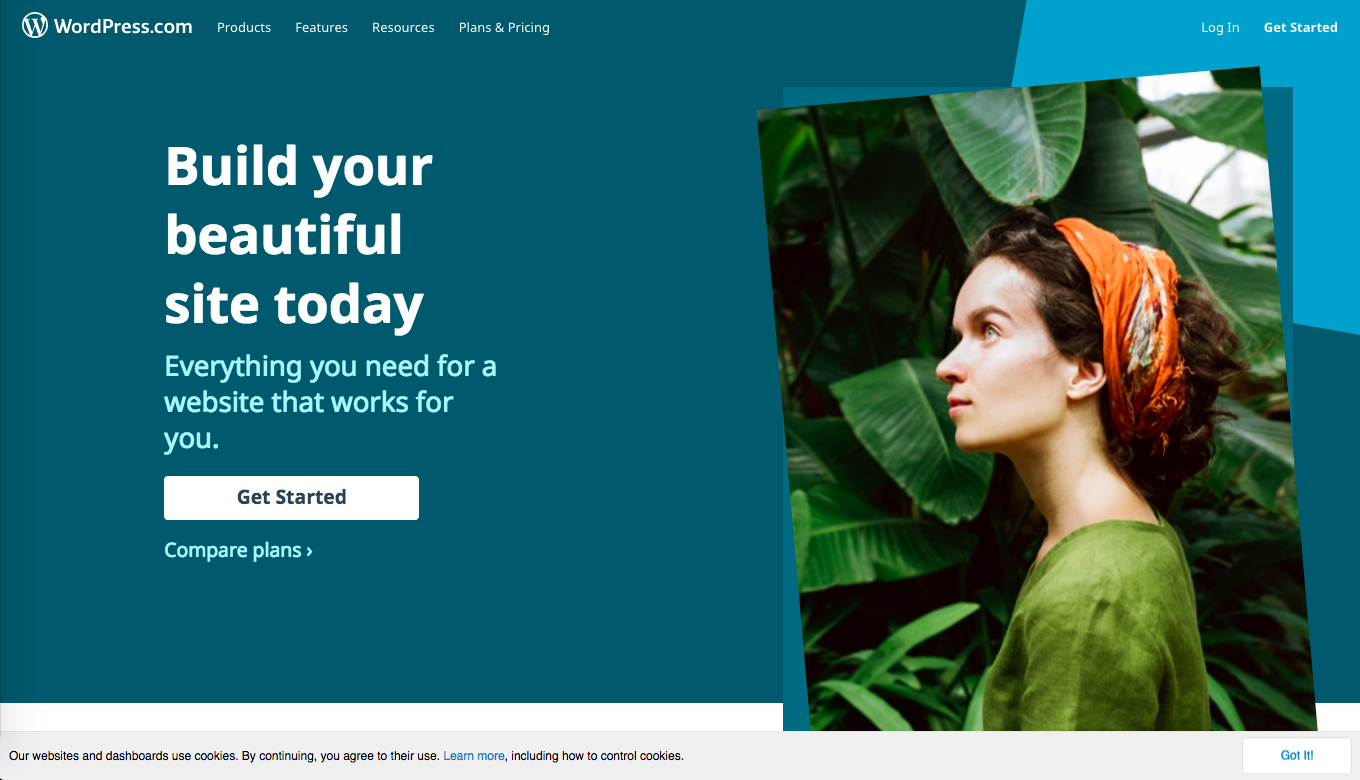
Our Pick: WordPress
WordPress is the world’s most popular online publishing platform, and for good reason—it’s also the best. In fact, since its creation in 2005, it has evolved into a complete online content management system (CMS) that powers a whopping 28 percent of the internet. This includes the websites of an impressive list of global brands. Think UPS, CNN, eBay, LinkedIn and the New York Times, among others.
WordPress is free, open-source software that allows you to create your own blog, website or app. This is done using thousands of attractive, infinitely customizable themes. As your blog grows, you’ll have access to more than 45,000 free plug-ins for incorporating additional features. These features include forums, members-only content, online stores and more.
WordPress also offers powerful security, responsive mobile sites and SEO capability. WordPress also has easy-to-use mobile tools for managing your content on the go. The company’s “Happiness Engineers” are available 24/7 with customer service and tech support. Also, the site’s colorful charts and graphs make it easy to track your activity statistics.
The software itself is free, but you will need to pay for your domain name (around $15 a year) and WordPress-compatible hosting service. Hosting typically runs from $4 to $15 per month, unless you plan to self-host. We discuss blog hosting options in greater depth in our article X.
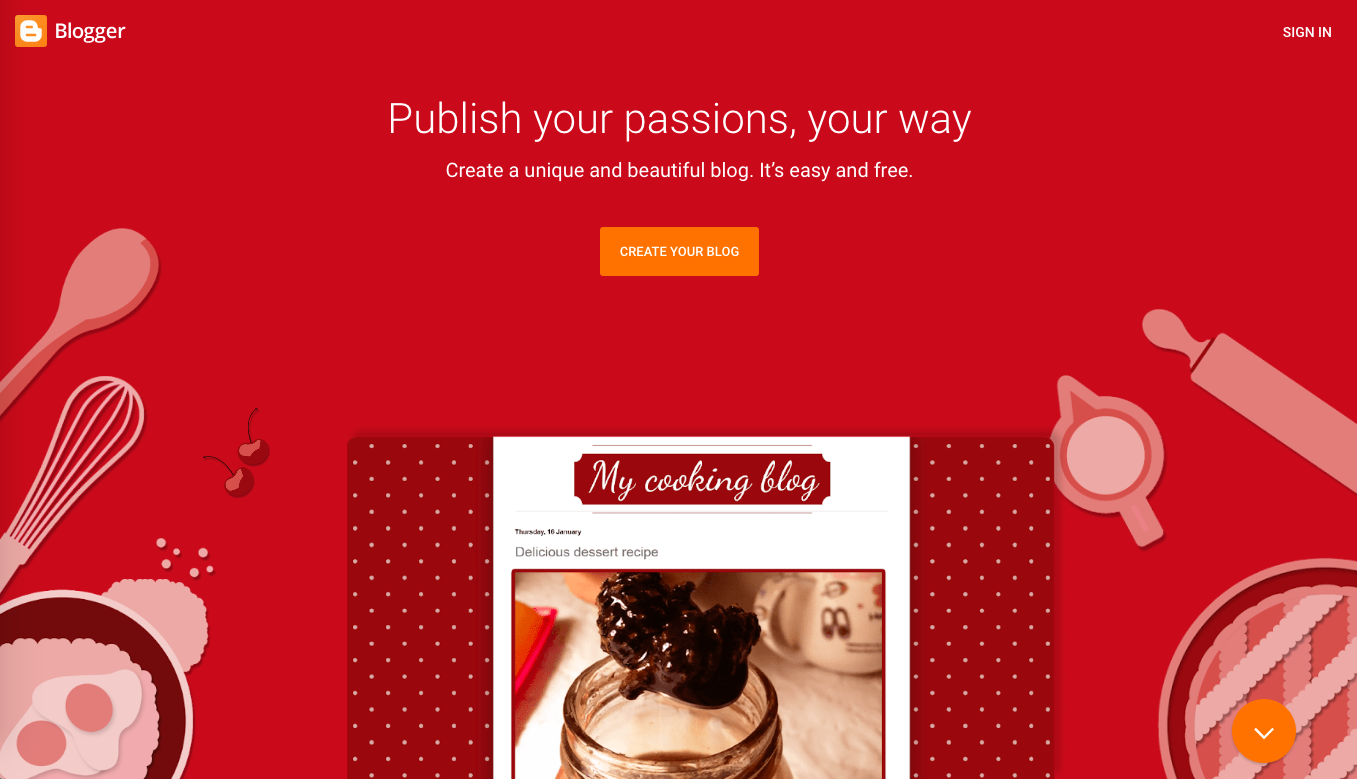
Blogger
Blogger is a free blog hosting service operated by tech giant Google, which acquired the platform in 2003. Like WordPress, Blogger offers hundreds of design templates that you can customize to reflect your personal style. It’s extremely easy to use, which makes it a popular choice for first-time bloggers. However, Blogger offers less flexibility than WordPress. Therefore, many of those beginning users end up switching to WordPress later.
Since Blogger is owned by Google, it includes access to features like AdSense (which allows you to monetize your blog through ads), Google Analytics and cloud storage. However, Blogger doesn’t allow self-hosting, which means you’ll have to rely on Google’s current offerings (which can change suddenly).
There are restrictions on the tools and features included in the software. These tools are modest compared to the vast number of plug-ins and add-on features available through WordPress.
Google also hasn’t shown much willingness to invest in Blogger, with infrequent updates to its software and customer support limited mainly to an online knowledge base and user forums.
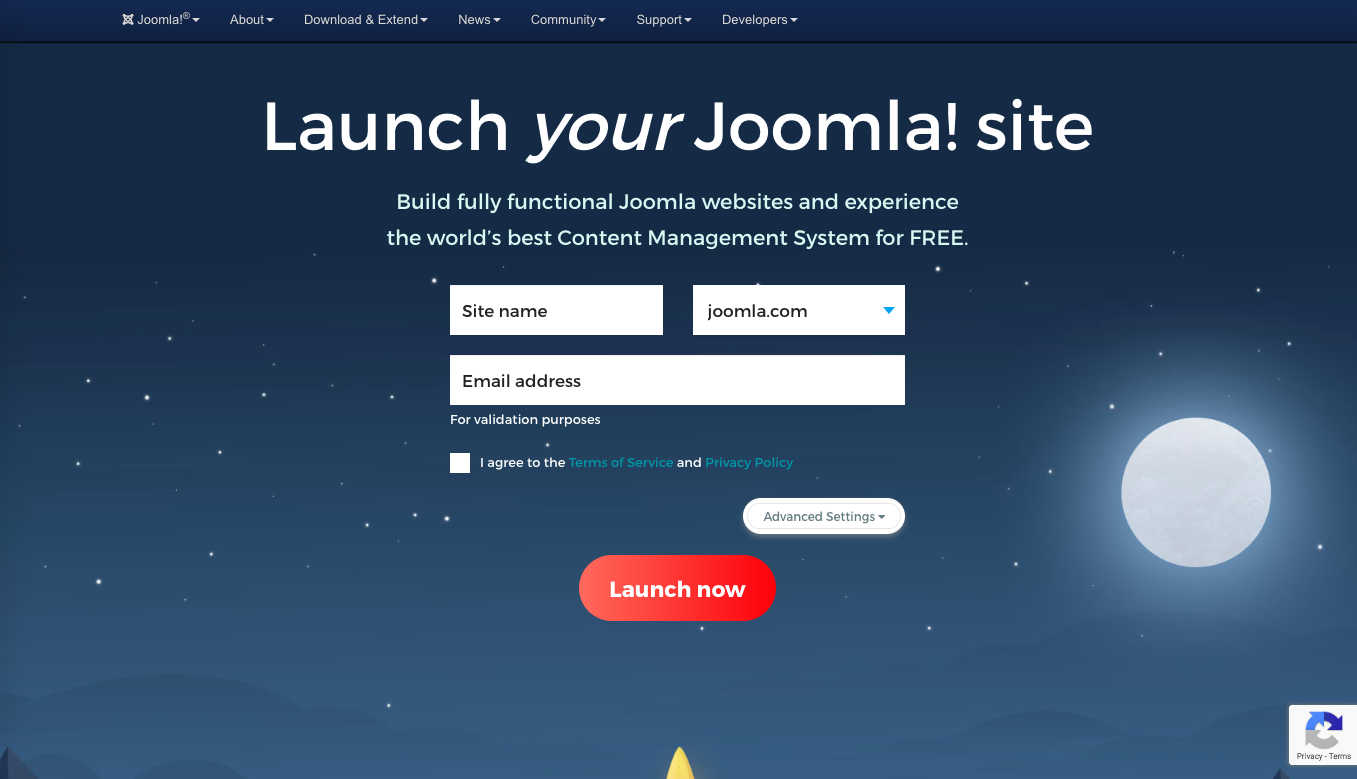
Joomla!
Joomla! is another open-source content management system similar to WordPress. The software is powerful and flexible. However, it also requires users to have a higher skill level than its previously mentioned peers. Hundreds of design templates and feature-expanding extensions are available. These are somewhat limited due to the relatively small number of Joomla users compared to the sizable WordPress and Blogger communities.
It’s also a self-hosted platform, meaning you will need to secure a separate domain name and hosting service. You’ll also need to manage your own updates, backups, security and tech support.
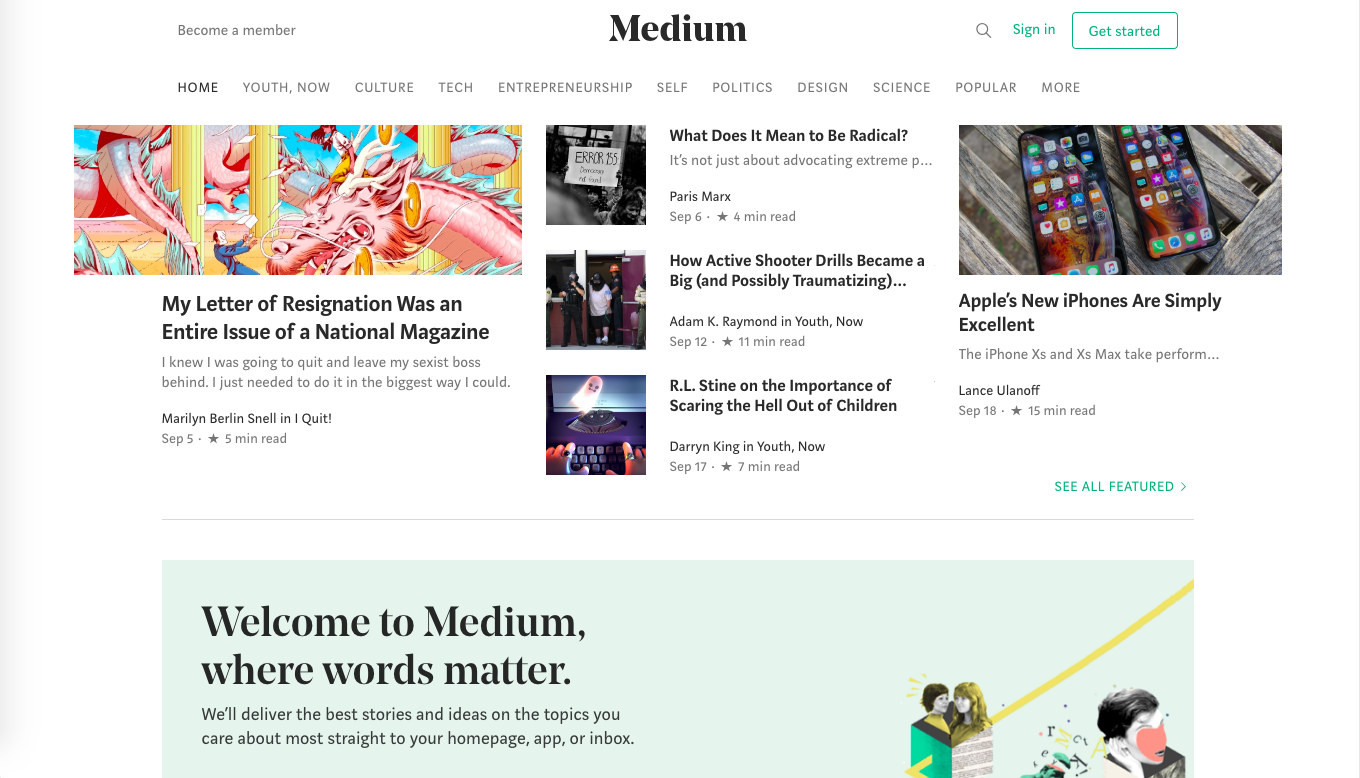
Medium
For bloggers primarily concerned with finding an online outlet for publishing their writing, Medium is a relatively new and attractive option. Founded in 2012, the site is a growing community of journalists, writers, and thought leaders that offers new bloggers an established audience for their work. Getting started is easy, with no coding skills or setup required. However, its design and other features are extremely limited, and it doesn’t allow users to run ads.
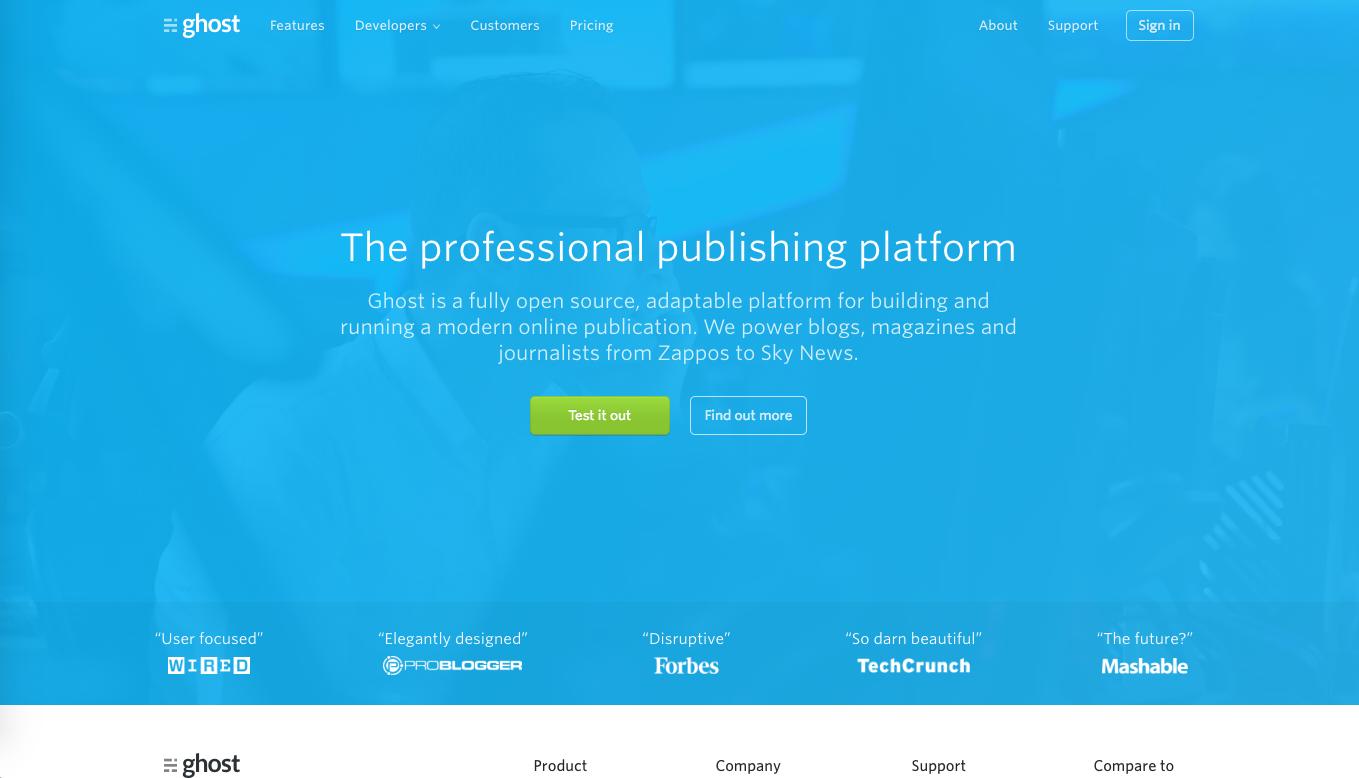
Ghost
Like Medium, Ghost is an open-source digital publishing platform geared toward journalists and other professional writers. Founded in 2013, Ghost supports the full spectrum of online media, from beginning bloggers to teams of writers and editors at established publications.
Ghost is available in a self-hosted version (for which you’ll need a custom domain name and web host) as well as a version hosted by the company. Its intuitive user interface and sleek, simple design allow users to focus on quality writing, but that also means options for customization and adding features are limited.






